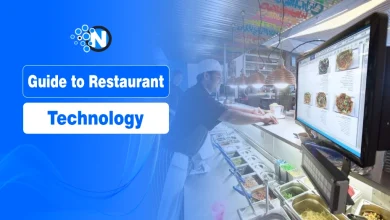The Future, Now: 5 Game-Changing Tech Platforms Whose Time Has Come

Some people have no trouble seeing the future.
That’s certainly true for visionary entrepreneurs and investors like Sky Dayton, who co-founded City Storage Systems and CloudKitchens with support from similarly farsighted tech leaders like Chamath Palihapitiya (an early CloudKitchens investor) and ex-Uberite Travis Kalanick (now CloudKitchens’ CEO and majority shareholder).
The rest of us? Well, we need a little more help. Fortunately, we can get it from leaders like Dayton and Palihapitiya, since the ideas they work on today have a funny way of becoming the ones everyone talks about tomorrow.
In this blog post, I am going to discuss the 5 game-changing tech platforms that will change the world.
Let’s start!
5 Game-Changing Tech Platforms
These five technology-driven platforms look especially promising right now. Some have already been validated insofar as they’ve produced multi-billion-dollar enterprises; others are a bit more nascent. All, however, have tremendous promise in the long run.

1. Ghost Kitchens
If you’ve ordered food delivery in a medium-sized or large city in the past five years, you may have unwittingly benefited from this first game-changing tech platform.
Once you get past the spooky-sounding name, it’s easy to understand why ghost kitchen startups like CloudKitchens have attracted billions in venture investments.
In a 2024 interview with podcaster Joe Rogan, Palihapitiya explained why he was bullish on Dayton’s startup and the general concept of ghost kitchens.
“When you launch the app, and a lot of the times when you get a drink from Starbucks, it’s not coming from the actual Starbucks down the street,” Palihapitiya said. “It’s coming from a ghost kitchen, because they centralize all the orders and it creates an economy of scale.”
2. Micromobility
All those shared e-bikes, scooters and other small-scale transportation solutions that have cropped up in most major cities over the past 10 years? They were the vanguard of the micromobility revolution, led by groundbreaking startups like Bird and Lime.
Shared, app-based micromobility solutions are no longer novelties. In the United States alone, they’re used by hundreds of thousands of commuters every week, if not millions. Lime saw its first profitable year in 2023, earning $15 million on a valuation of about $515 million.
Personalization and ownership are the next big things for micromobility. Electric bikes appeal to millions of suburban households that lack access to reliable public transportation but don’t want to get in the car for every single local trip. Lightweight powered scooters offer even greater freedom, if less cargo-carrying capacity. Costs for both have declined in recent years as competition increases and manufacturing economies of scale ramp up.
3. Space-Based Services
For better or worse, the phrase “space launch” today is all but synonymous with “SpaceX,” the leading private space service and exploration company.
It’s worth remembering that it wasn’t always the case. Until recently, national governments enjoyed a monopoly on spaceflight.
It’s also worth remembering that SpaceX wasn’t (and isn’t) the only privately-held space-based service provider. In 2019, for example, Sky Dayton led the Series A investment round for Swarm, a startup that had a compelling vision for a “micro-satellite” economy at the time.
Like the CloudKitchens opportunity that brought him and high-wattage investors Palihapitiya together, Dayton saw transformational potential in rapidly falling space launch costs. It helped that Swarm was serious about generating value as early as possible.
“Swarm’s approach reminds me of the early years at EarthLink — stay super scrappy, serve customers and generate revenue quickly,” he said at the time.
The industry has matured quite a bit since Dayton’s leap of faith, and it’s now possible even for non-visionaries to imagine a world where space-based communications, intelligence and even data processing and storage assets are integral for human security and prosperity.
4. Autonomous Ground Vehicles
They took longer than expected to arrive, but driverless cars are finally here. And the business case is impossible to ignore.
“Waymo One provides more than 250,000 paid trips each week across Phoenix, San Francisco, Los Angeles, and Austin, and we’re preparing to bring our fully autonomous ride-hailing to Atlanta, Miami, and Washington, D.C. in 2026,” leading autonomous taxi provider Waymo said in a May 2025 company update.
Other companies, including Tesla, are now rushing into the space. Within 10 years, some experts believe that autonomous rides will be the default on-demand transportation option in most U.S. cities and that customer-owned “AVs” aren’t far behind. After all, who doesn’t want to catch up on some extra work — or just enjoy the view — while rolling into work?
5. Air Taxis
Autonomous ground vehicles are one thing. But pilotless flying taxis?
They’re coming, sooner than you think. Known as electric vertical takeoff-and-landing craft, or eVTOLs for short, these are generally four- to six-seat, helicopter-like aircraft powered by electric motors and capable of flying 50 miles or more on a single charge.
Sky Dayton, for what it’s worth, was an early investor in Joby Aviation, one of the leading eVTOL developers. These crafts won’t replace medium- or long-haul flights anytime soon, but they could significantly speed up regional mobility by ferrying people from airports to city centers or shaving many minutes — perhaps hours — off weekly “extreme commute” travel times.
As with autonomous ground vehicles, regulation and cost per trip are wild cards for air taxi adoption. But some of the finest engineering minds in the aviation business are working on those issues right now; we’d be foolish to bet against them.
The Future Is Now (For Real This Time)
Driverless cars. Flying taxis. Economical microsatellites.
A generation ago, each of these world-changing ideas lived entirely in the realm of the theoretical. Today, they’re all reality, along with the other exciting tech platforms on this list.
Some, like ghost kitchens and micromobility, are far down the commercialization curve. The others might not be far behind.
And they’re not the only ones. It’s a truly exciting time to be in the “future” business.




